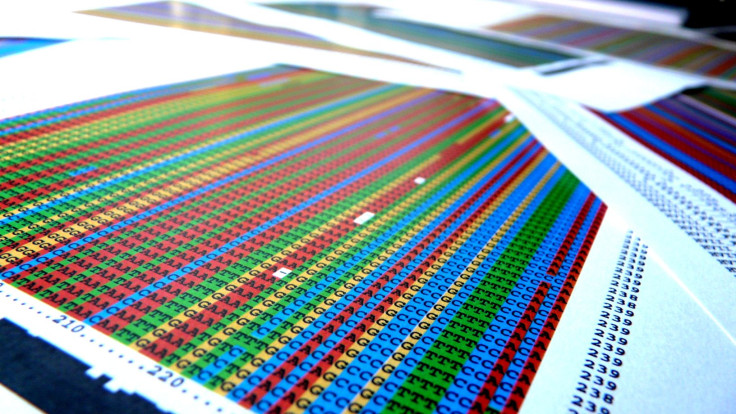Whole Genome Sequencing And Its Implications: Can We Know Too Much?

What would you do if you had information about your entire genome — which told you the varying levels of risk you might have for diseases you’ve never heard of? Perhaps your genes would tell you that you had a high risk of developing Alzheimer’s disease, and suddenly your world would be different: you’d find yourself panicking every time you experienced a memory lapse, wondering if the clutches of dementia were already closing in, and that it’d only be a matter of time before you were in diapers and the world you knew washed away.
At the 2014 Forbes Healthcare Summit in New York City, Forbes Senior Editor Matthew Herper spoke about his experience getting his DNA sequenced and how it impacted — or didn’t quite impact — his life moving forward. Along with physician and genomics expert Dr. Robert Green, Herper discussed how knowledge of miniscule gene details could influence a person’s thinking, fears, and entire lifestyle.
Herper discovered he had hereditary hemochromatosis, or too much iron in his blood, as well as “500 various things of unknown significance,” he said. Basically, he didn’t find out anything of much consequence — nothing that would make him drastically change his life, or fear for his or his children’s future. But a pregnant woman getting her DNA sequenced and discovering that her unborn baby had a 1 in 4 chance of having a devastating mutation might feel differently.
The genome is an organism’s full set of DNA, and human genomes have about 3 billion DNA base pairs. A quick, cheap, and effective way of getting DNA sequenced would allow individuals to have access to a wide array of information that could then be used to improve their outcomes for certain diseases in the future, and spur them to improve their lifestyles (for example, people whose genes show they have a predisposition to cancer or diabetes might want to take control of their exercise and diet once they’re enlightened with information). This is where personalized medicine comes in — when a physician tailors treatments and approaches to a patient based on their unique genetic makeup. It could give people the power to inform themselves, and better themselves, Green said during the discussion.
The Burden Of Information
With all these clinical benefits aside, however, experts still wonder what knowing all of your DNA information really means for the individual. During the summit, Herper and Green discussed the implications of knowing too much — particularly among ordinary people who will eventually be taking advantage of the commercialization, and cheaper costs, of DNA sequencing in the future (the cost of getting your DNA sequence has decreased over the years, from hundreds of millions of dollars to anywhere between $1,000 and $10,000).
“What’s the burden of carrying around information that may not always manifest?” the speakers mused, referring to the fact that DNA sequencing can often claim a person has a slightly higher risk than others for a damaging hereditary condition, but that condition may not always manifest itself — nothing is certain with these tests. It’s the difference between people who are aware versus those who are unaware: ignorance is bliss, after all, and perhaps remaining unaware would be better for your mental health.
One audience member noted that sociological studies showed that people who are labeled hypertensive actually end up having higher hypertension than people who haven’t been labelled. That study, published in 2010, noted that “hypertension labeling might evoke feeling of fear of the affliction of a serious disease in a patient,” which “has been proven accurate by numerous investigators who have documented the negative psychological consequences of hypertension labeling.” It’s possible that the somewhat meaningless information a DNA sequence can often provide could have a greater psychological and emotional impact than we previously realized.
In a 2013 study, researchers wrote that though whole genome sequencing (WGS) was a valuable tool for disease diagnosis and improving treatments, it “raises difficult questions regarding what to do with the vast amounts of information generated that is incidental to the original purposes of sequencing, but have implications for health and well-being… Incidental information disclosure will be increasingly common as more and more physicians incorporate WGS into their practices, and it is likely to affect many patients’ health behaviors. The psychological processes behind changes… may be neither warranted nor beneficial.” In other words, learning about your genome could cause you some psychological distress even if it’s not warranted.
But Green, who is a physician-scientist at the Division of Genetics and the Department of Medicine at Harvard Medical School, believes that knowledge isn’t a burden, but rather is empowerment; and said that ordinary people should have access to their genomes as a matter of course in the future. The future is going to bring an increase in the use of whole genome sequencing, making it more available and accessible to the average consumer (some companies, like 23andme, have already attempted this). Ultimately, however, it depends on your personal choice: whether or not you believe that knowledge is power, or ignorance is bliss.
Published by Medicaldaily.com



























